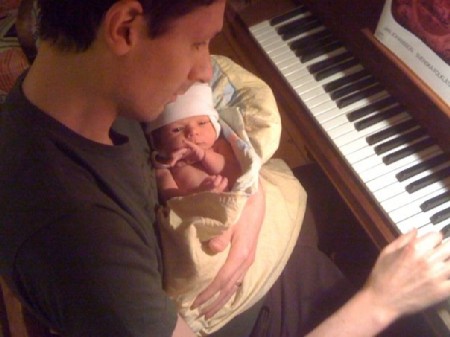when does it get interesting?
17 december 2009 | In Moral Psychology parenting Self-indulgence | 2 CommentsWe just returned home with our newborn child, who shall remain nameless (but not for long). And, in a very Carrie-like trope indeed: it got me thinking. (Carrie of New York single life fame, not the gym-hall massacre one. Or the one hilariously falling over in the opening credits of ”little house on the praire”): At what age does a human being get interesting? Every now and then I come across opinions, and decided preferences (and you know those interest me no end), in this matter. Most frequently the (faux)controversial opinion is that kids are tedious and uninteresting at least up until the point they develop thoroughly thought through political views and a natural distaste for their parents. Also, they should be able to help you with your computer.
Others require less. Capacity for speech, for instance, and some creative thinking/acting to boot. This preference is guided by wanting a human being to be treatable as an equal, and the relevant equality is one of thought, rather than of bowel movement or need for constant attention. Four-year olds will do for these people. There is a trend in moral psychology to make a big deal out of the stage where kids start to distinguish conventional from non-conventional wrongs, which is usually a bit earlier still and that certainly is an interesting age.
Infants, on the other hand, are often perceived as poop/sleep/crying machines that have the mild added value of smelling quite nice. (Young, single intellectuals – the group I’ve spent the larger portion my life belonging to, and thus have some inside knowledge of – have a hard time realising how they could possibly enjoy the company of, and thus care for, people of this miniscule sort.) They may be cute, and they may evoke some positive emotions, but interesting? Not as such.
I beg to differ (from the people I just kind of made up). Infants exhibit complex behaviors, and while it might seem random beyond the bare essentials, learning does takes place. The study of infants needs to take into account what they actually control. One particular interesting study used the baby’s ability to change the speed with which it sucked on a pacifier to reveal its preferences. We don’t need to assume fullblown intentions in order to identify interesting behaviors and the beginning of individual differences. To me, at least, the Little One has been interesting from the start.

Congratulations on your dissertation David. I almost dowloaded it as a pdf, but this is just a break from what I am supposed to do and not real pleassure, so I better save that for another day.
This might be (first I wrote is, but have loss of memory and am not sure) the first time that I have read your blog and I will follow it, as I follow your wifes, this for english reading practice and interesting writing. Hope everything is fine with you and your family. Congratulations to the parenthood, I am glad that you find the little One interesting from start!
Kommentar by ebba n — 13 februari 2010 #
Thanks! The family is thriving. Great to now I have at least one follower, although I wouldn’t encourage using it as an example of good english. I’m way to careless and over-enthusiastic in my use of the english language.
Kommentar by david — 27 februari 2010 #